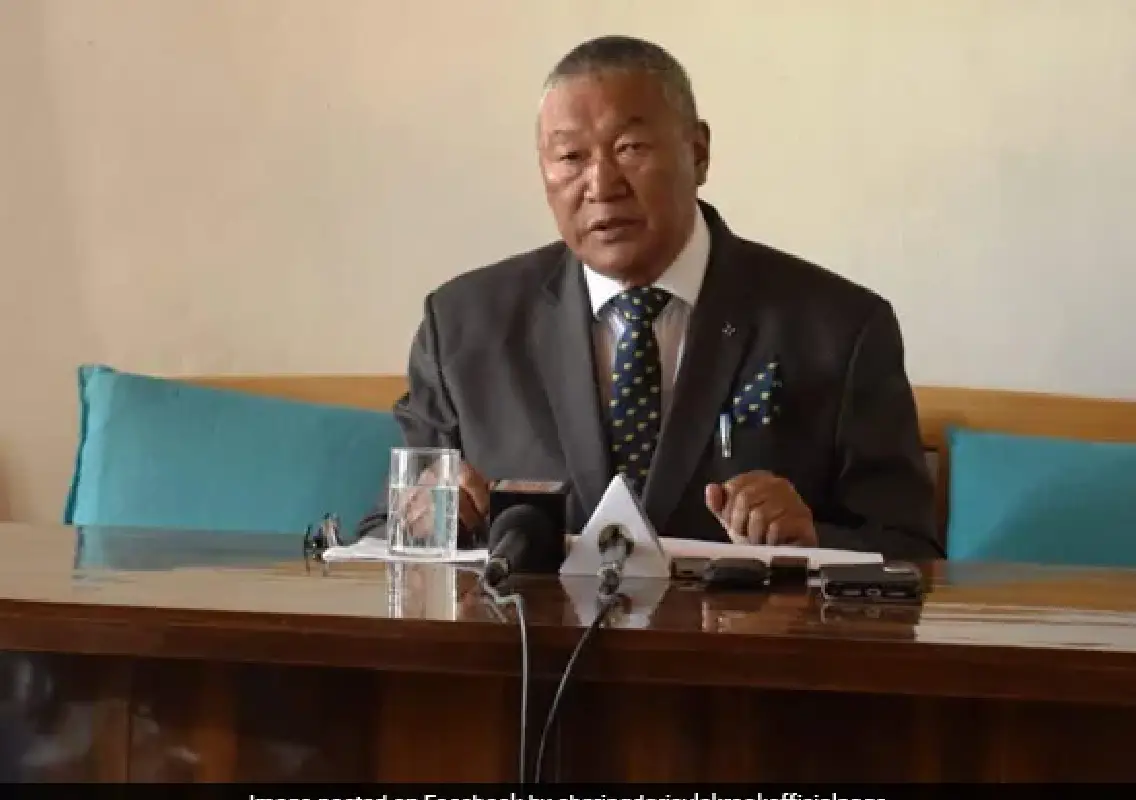By News Karnataka Editorial Team
Copyright newskarnataka

Leh: Apex Body leader explains causes of unrest
Leh: Chering Dorje Lakruk, co-chairman of the Apex Body, Leh (ABL) and chief of the Ladakh Buddhist Association, has addressed the recent unrest in Leh, providing insights into why the protests turned violent and what the people of the region demand from the government. A former minister in the erstwhile Jammu and Kashmir state, Lakruk has been a key negotiator between Ladakh representatives and government officials.
Speaking to The Indian Express, Lakruk said that the protests, which began peacefully, escalated because of administrative lapses and a lack of timely communication between authorities and the local population. “People of Ladakh have long-standing demands that need urgent attention. When these are ignored or delayed, frustration builds up,” he explained.
Demands of the Ladakh people
Lakruk emphasised that the core issues revolve around the implementation of the Sixth Schedule of the Constitution, statehood, protection of cultural heritage, and ensuring equitable development. “Residents are concerned about the preservation of their land, culture, and employment opportunities. They want clear assurances from the government regarding administrative autonomy and the empowerment of local governing bodies,” he said.
He further clarified that the demonstrations were initially intended to be peaceful expressions of local sentiment. However, when authorities did not respond promptly, tensions escalated, leading to clashes and violence. “The situation on September 24 spiralled out of control because of poor crowd management and the handling of security forces,” Lakruk added.
Role of leadership and negotiations
As a key negotiator, Lakruk has been urging dialogue between the administration and community representatives. He noted that ongoing discussions with the Union government aim to address the long-standing grievances of the people while maintaining law and order.
“We are committed to resolving these issues through dialogue. Ladakh’s future depends on constructive engagement rather than confrontation,” he said, highlighting the importance of administrative reforms and decentralised governance to prevent further unrest.
Peaceful advocacy and community unity
Lakruk stressed that the people of Ladakh continue to prefer nonviolent protest and dialogue. “Our community values peace. The violence witnessed was unfortunate, but it underscores the urgency of addressing local demands before they intensify,” he said. He also appealed to youth and protest organisers to remain patient and work within legal channels to advance their objectives.
The recent unrest in Leh has brought the region’s unresolved issues into sharp focus. Chering Dorje Lakruk’s statements underline that administrative gaps, delayed responses, and unmet demands contributed to the escalation. The call for Sixth Schedule implementation, protection of cultural and economic rights, and increased local governance remain central to achieving lasting peace in Ladakh.



